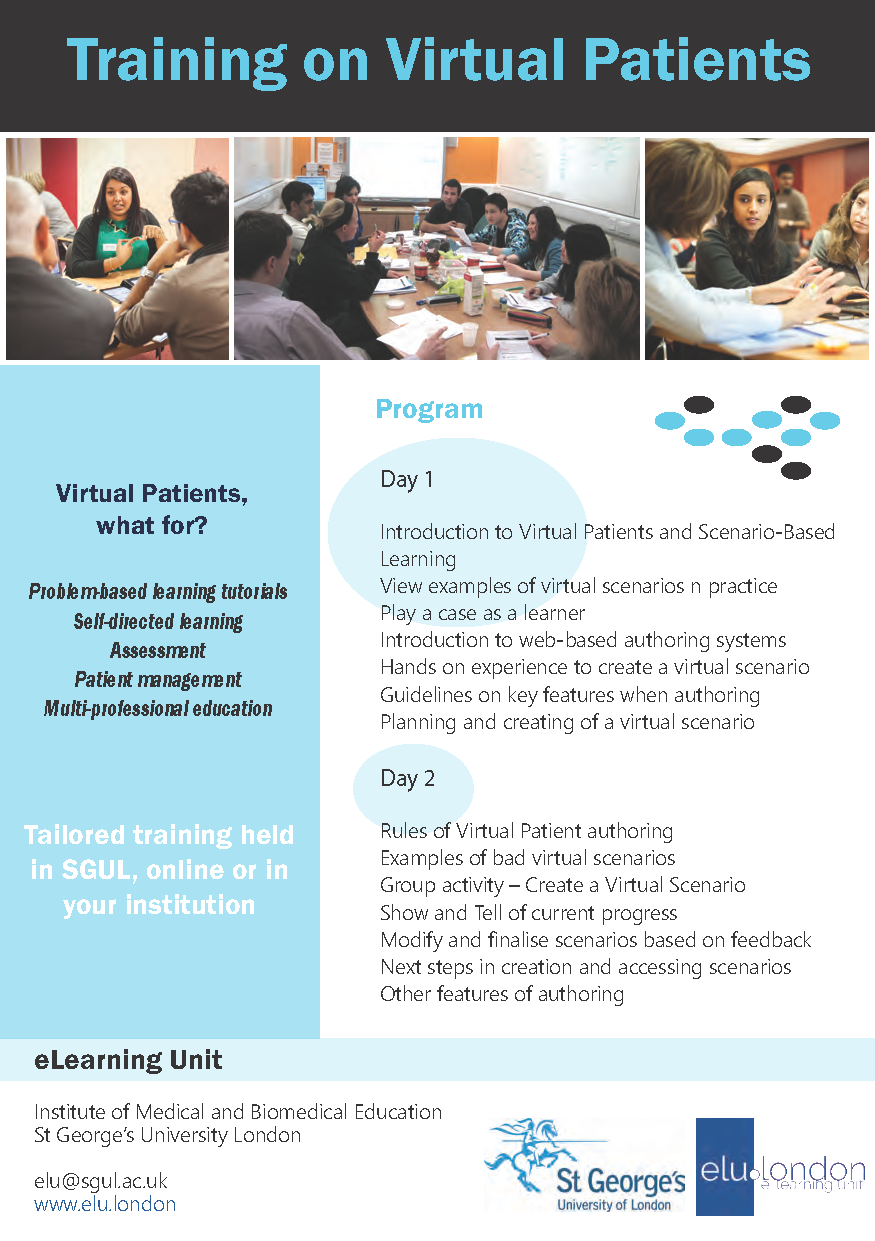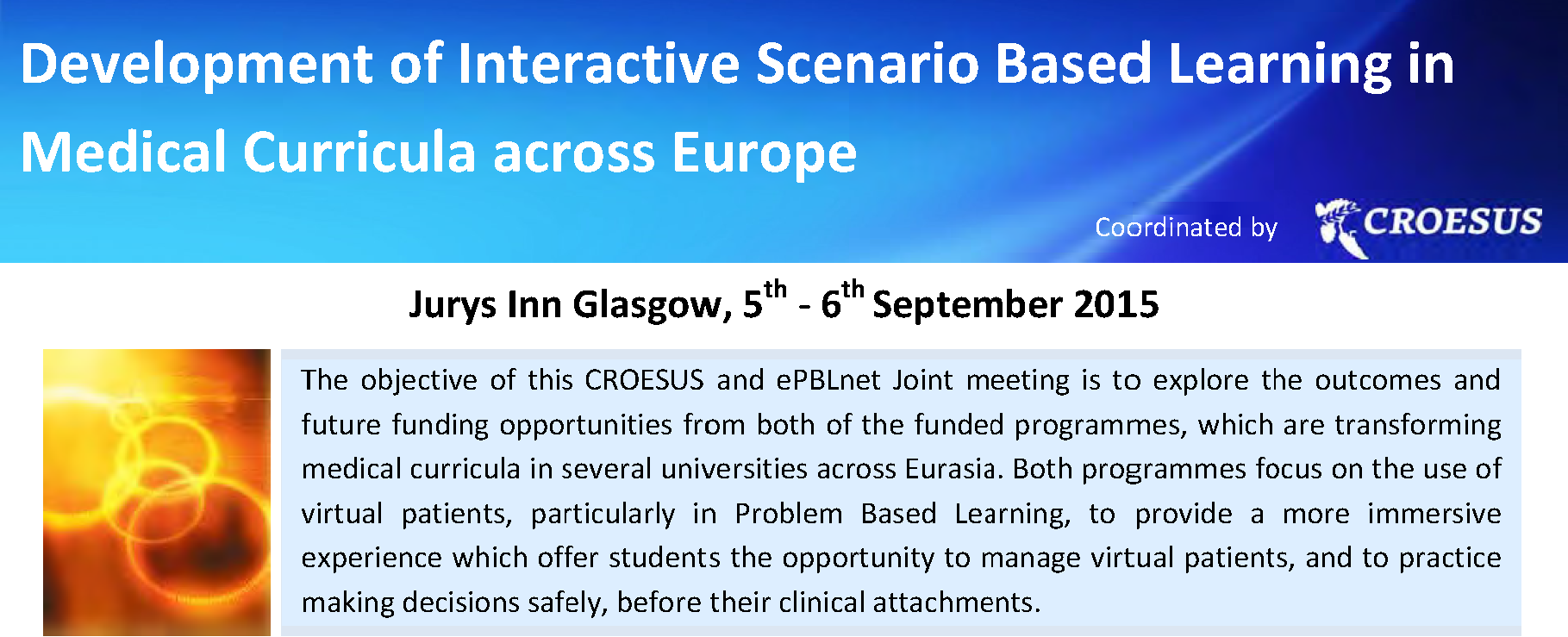Training on e- Learning
Learning
The eLearning Unit (eLU) designs and implements training on eLearning tools for St George’s members of staff who deliver courses to undergraduate and Postgraduate students. Some of the examples are:
- SGUL Education Day: eLU actively participates in the Education Day implementing workshops, presentations and stands for staff and students.
- Teaching and Learning skills: As part of the Teaching and Learning Skills programme at SGUL we contribute to sessions on Teaching and Learning skills for staff from the NHS trust, the Undergraduate Intercalated BSc programme, and the Healthcare and Biomedical Education PgCert.
- One to one advice: we are at the disposal of SGUL students and of staff that requires advice on eLearning upon request.
Virtual Patient Workshops
The e-Learning Unit delivers workshops in the creation and implementation of interactive virtual scenarios also referred to as Virtual Patients within the medical and healthcare discipline. These workshops introduce participants to scenario-based learning (SBL) as a whole, how to use SBL and provide an opportunity to participants to have an hands on experience in creating interactive virtual scenarios.
Workshops are tailored to be delivered from half day to two full day workshops. The workshops can be constructed covering a range of related topics which best fit the recipients’ needs. Typically these workshops concentrate on creating Virtual Patients for use in medicine and healthcare, though the processes described could be applied to any competency-based discipline.
The training can be held in SGUL, in the interested institution or Online.
Workshop objectives:
- Increase awareness and encourage uptake of Virtual Scenarios in education.
- Propose strategies for embedding Virtual Scenarios in problem-based learning, self-directed learning, classroom-based learning, and assessment.
- Learn about the cognitive thinking behind decision making.
Main content: Introduction to virtual patients and examples of where they are used within the medicine and healthcare course at SGUL
- Explanation of cognitive behaviours during decision making and the importance of it in competency based professions.
- Introduction of Virtual Scenario authoring systems.
- Tips on creating a good branched virtual scenario and what makes a good option.
- Hands on experience in create an interactive virtual scenario.
- Introduction to difference types of virtual scenarios for difference teaching settings
- Understand the role of the teacher or facilitator when using virtual scenarios.
Seminars
The e-Learning Unit has delivered a number of seminars on different e-learning topics, the seminars have been attended by relevant researchers and stakeholders. Thanks to our funded international projects, we are now working with a wide network of professionals, internationally known for their work on scenario based learning and virtual patients. See more information on some of the seminars carried out below:
We are our choices, Learning decision-making through scenarios
|
Development of Interactive Scenario Based Learning in Medical Curricula across EuropeJurys Inn Glasgow, September 2015
|
Designing and evaluating technology-enabled learning activities for health professional educationSt George’s University of London, November 2013.
|



